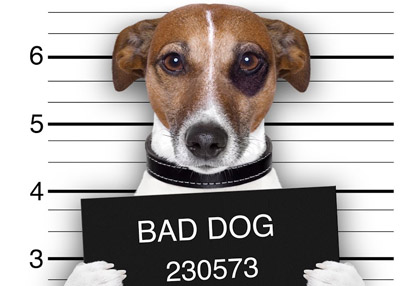Draper Dog & Animal Bites Lawyer Serving Utah

Dog & Animal Bites
A dog bite victim in Utah can recover compensation under a special statute and the doctrines of negligence, negligence per se, scienter, and intentional tort. The dog bite statute makes owners and keepers of dogs liable for all injuries caused by their dogs, excepting only dogs in law enforcement.
The traditional doctrine that makes a person liable for harm inflicted by a domestic animal is referred to as “scienter” (the Latin word for “knowingly”), “common law strict liability,” and “the one bite rule.” As it applies to dog bites, this doctrine holds that a victim can recover compensation from the owner, harborer or keeper of a dog if (a) the dog previously bit a person or acted like it wanted to, and (b) the defendant was aware of the dog’s previous conduct. If either of those conditions are not met, however, the victim cannot employ this doctrine as a ground for recovery. See The One Bite Rule.
The one bite rule is the foundation of dog bite law. It exists in every state. The majority of American states have supplemented it with statutes that make dog owners responsible for all bites including the first one. These so-called “dog bite statutes” sometimes extend to people other than dog owners and injuries other than dog bites. Furthermore, the majority of states impose liability on dog owners and others under a variety of other legal doctrines, including negligence, premises liability, nuisance, and negligence per se for a violation of an animal control law such as a leash law, a law prohibiting dogs from being at large, or a law prohibiting dogs from trespassing. An emerging ground for liability is the dog owner’s failure to stop a dog attack after it has begun. If the one bite rule or any other doctrine works against a victim, therefore, another might support his claim for compensation. See generally Legal Rights of Dog Bite Victims in the USA.
Utah supplements the scienter cause of action with a dog bite statute. The state therefore is classified as a statutory strict liability state. Its dog bite statute makes a dog owner or keeper liable whenever his dog bites a person, even the first time. The statute applies to dog owners and third parties who are keepers of the dog, and covers bites and other injuries inflicted by a dog.
This state also permits a dog bite victim to recover compensation on the ground of negligence. Negligence is the lack of ordinary care; that is, the absence of the kind of care a reasonably prudent and careful person would exercise in similar circumstances. If a person’s conduct in a given circumstance doesn’t measure up to the conduct of an ordinarily prudent and careful person, then that person is negligent. For example, letting a stray dog into a day care center is negligence. See Negligence. A victim who is at fault in some way is not barred from recovery; he can recover from any defendant or group of defendants whose fault (combined with the fault of immune persons and nonparties to whom fault is allocated) exceeds his own. Utah Code Ann. §§78B-5-818 and 78B-5-819. By the same token, the victim’s fault will reduce his recovery.
In Utah, the violation of an animal control law can result in liability on the part of the violator, whether or not he owns the dog. States, counties and cities often have laws requring dogs to be on leash, or prohibiting them from being at large or from trespassing. With few exceptions, courts have ruled that violating such laws can be the basis of liability. In this state, the violation constitutes a prima facie case of negligence unless there was an overriding reason to justify the violation. Child v. Gonda, 972 P.2d 425, 432 (Utah 1998); Thompson v. Ford Motor Co., 16 Utah 2d 30, 395 P.2d 62 (1964).
This state also permits a relative of the dog bite victim to recover damages for emotional distress that manifests as an illness or bodily harm, if the person was within a “zone of danger” created by the tortfeasor, the person is a relative of the victim, the defendant should have realized that his conduct involved an unreasonable risk of causing the distress, and the defendant also should have realized that the distress might result in illness. Johnson v. Rogers, 763 P.2d 771 (Utah 1988).
